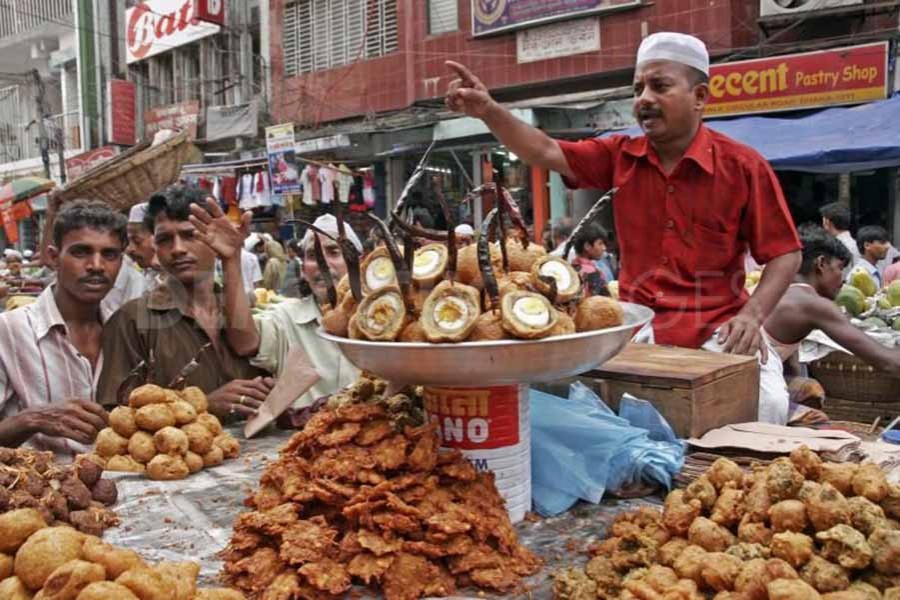Street foods have their special attraction. With delectable taste, most of the street foods cast an irresistible spell on their customers. One of the draws is definitely their low price. The chotpoti served from a mobile van in the open boasts a flavour and aroma not available in the homemade variety. It is even more pronounced with the jhal muri. The concoction with which muri (puffed) rice is treated is a business secret no jhal muriwalla is ready to divulge. Some of the veterans among them have perfected the art so much that a regular circle of connoisseurs has developed for their preparation. At some school and college gates, street corner, entrances of parks or play grounds or any other strategic points, these street food vendors do roaring business.
Then there are kitchen vans where foods are prepared instantly to serve customers. From traditional potato chop, piaju and vegetable or chicken roll to chicken fry are available with such mobile kitchen. The items are served sizzling hot. Customers, mostly students and teenagers among them, swarm around. Usually the vans are parked on the roadside and customers stay on pavement to have a quick bite.
The picture of mobile vans or kitchens is now so commonplace that people hardly get startled. They can easily invite accidents. Even fewer are aware that such facilities are a measure of the lifestyle, nay, living standard of a people. Dhaka is the capital of a country that is poised to graduate to a developing country from a least developed one. The street foods served in the manner they are done certainly do not go with the status of such a people.
Chotpoti, fried or cooked foods are served on plastic plates not at all properly washed. They are simply splashed in water kept in a tub or bucket for hours together. No running water is there for washing those plates. Imagine the one-time use of plastic packet or dish used for similar purposes, usually when parcelled, in the nearby posh hotel or restaurant. Some use papers, mostly newspaper cut pieces to hand over their jhal muri, chanachur, boiled peas, pickles. The fact is that such makeshift food facilities and serving dishes do not go with any decent living standard.
Fruits are a variety of food most people now cherish and have learnt to appreciate their food value. Unfortunately for people here, the way they are prepared right from slicing to serving can be a potential source of diseases. Some of the fruit vendors use gloves to peel their pineapples, papayas, water melon etc.; but you never know how old those gloves are. Also they receive money with the gloves on and then they use the same for peeling fruits into pieces. Plastic plates used are splashed in water likewise other food vendors do in a tub and that is all.
This, after all, cannot be a hygienic way of serving foods. Fruits have the added danger of various chemicals with which they are treated. Even if those were organic, free from chemicals, the system of serving them is enough to threaten health of those who eat such foods or fruits. Strangely, not many people, though, complain illness. Maybe, people here have developed extraordinary immunity against diseases. Untreated water does not do any harm to a sizeable segment of people living mostly in slums. Similar is the case with customers taking street foods. Yet it is time that people opted for foods served in a more hygienic condition than they currently are used to.


